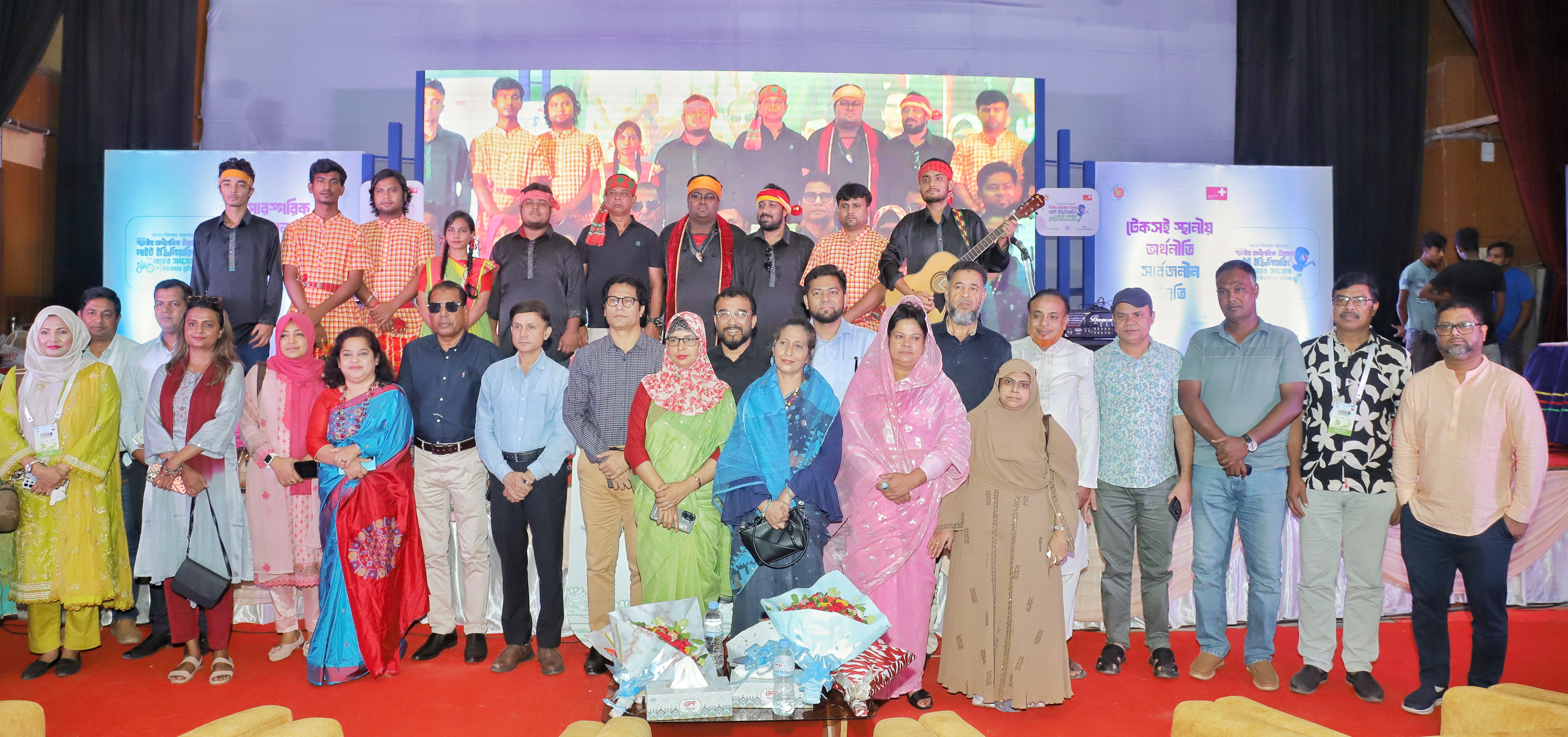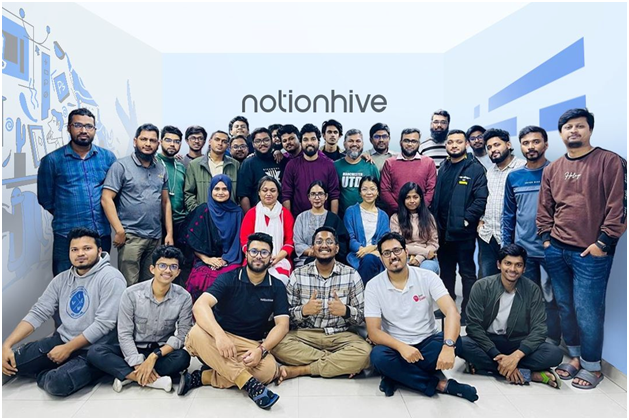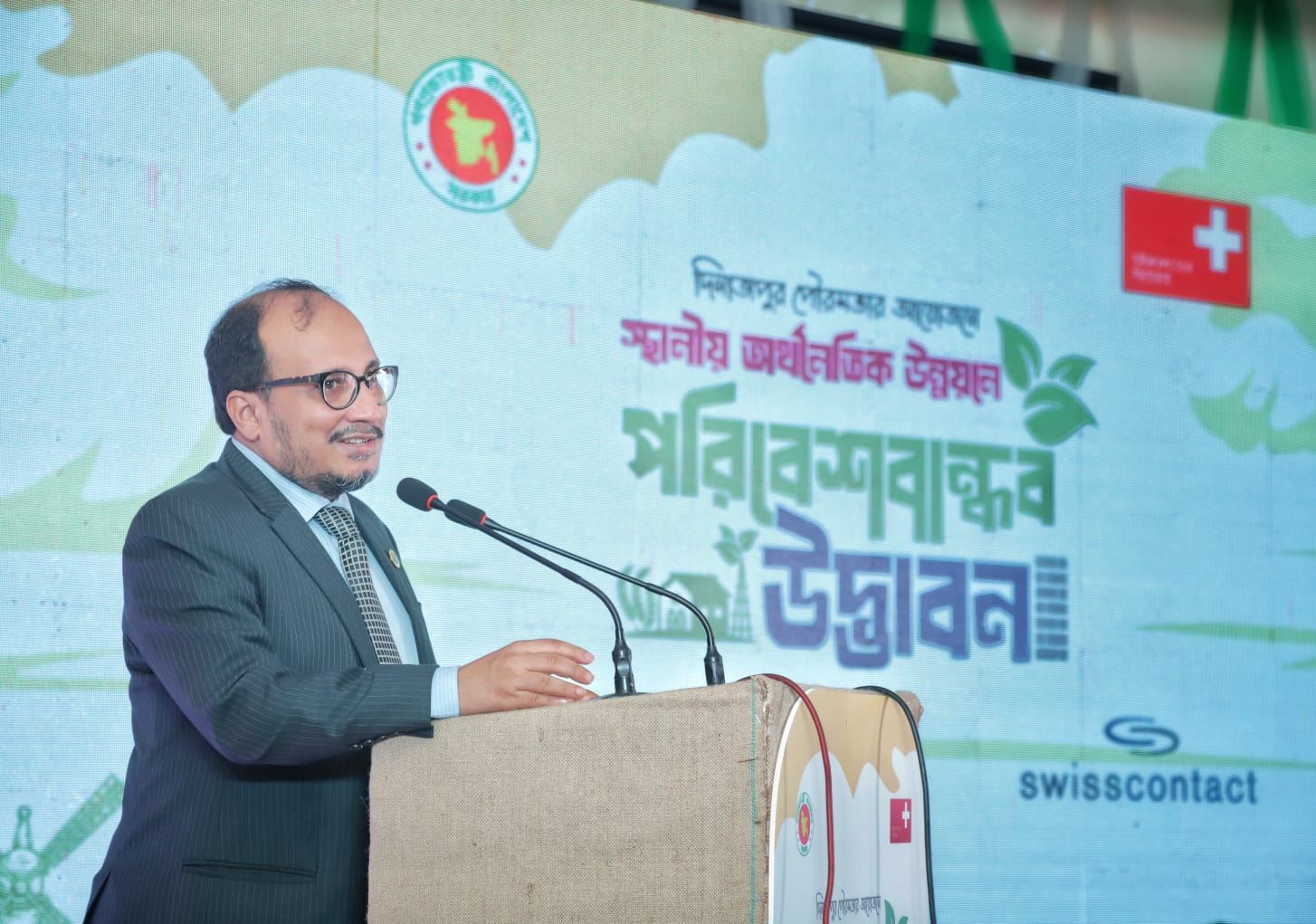
Since our Honorable Prime Minister has provided refuge to Rohingya people fleeing Myanmar army massacres, the key purpose of the Rohingya response should be to provide them shelters with dignity. Another important goal of the response is to ensure sustainable repatriation. COURTESY
Cox's Bazar CSO NGO Forum (CCNF): is a network of about 60 CSOs and NGOs working in Cox's Bazar to make Cox's Bazar society human rights and gender-responsive through positive engagement with the government. The main objectives of CCNF are (i) coordination among NGOs, (ii) strengthening CSO and NGOs in Cox's Bazar based on human and gender right, (iii) collective coordination with government, (iv) to promote localization and accountability, (iv) working with a government with positive engagement. CCNF has been continuously providing its comments on the draft JRP. In February 2021, we sent specific recommendations, on April 22 CCNF sent a letter to the Strategic Executive Group (SEG) with specific demands to incorporate in the JRP. On May, 06 CCNF organized another webinar on JRP were more than 500 participants including Member of Parliament, Upazila Chairman, Union Parishad Chairman-Members, local journalist, local CSOs and NGOs representative participated.
Purpose of the Rohingya Response and the future: Since our Honorable Prime Minister has provided refuge to Rohingya people fleeing Myanmar army massacres, the key purpose of the Rohingya response should be to provide them shelters with dignity. Another important goal of the response is to ensure sustainable repatriation. After nearly four years of the Rohingya influx in 2017, the condition and circumstances suggest that this will be a long-term crisis. As a result, the Rohingya management strategy must be forward-thinking, futuristic. The strategy would be futuristic if it has a clear action plan for dealing with the repatriation delay. For example, if repatriation takes longer than two years, we'll need a different strategy than if it takes five years. CCNF's initial issue with the JRP 2021 is that it is insufficient to efficiently fulfill the purpose, and that it is also not a futuristic strategy since it only focuses on a single year.
We Need to Have a National Strategy: The management of the Rohingya refugees has clearly turned into a national problem for Bangladesh, and it is up to the international community to find a long-term solution. This situation necessitates top-level national strategy and executive-level action. The government of Bangladesh is prioritizing the development of Cox's Bazar, with nine megaprojects currently in the works. The entire socioeconomic situation could improve, but the Rohingya crisis is posing a threat to Cox's Bazar's growth. E.g., If the Rohingya youth are not given a future, they may be exploited by various militias or fundamentalist groups, or they may be persuaded to illegally migrate to other countries. Both of these conditions may be detrimental to Bangladesh's national interest. As a result, we need a national plan and a national high-level committee comprised of government leaders, civil society organizations, and other key stakeholders. A global repatriation campaign should be included in the national programme. Another successful alternative is to track two diplomacies (for example, civil society and religious leader initiatives). Two diplomacies should follow this track in a variety of ways to compel Myanmar to create an atmosphere conducive to long-term repatriation. Third-party repatriation should also be included in the national strategy.
Localization must be the strategy of Rohingya Management: We appreciate the JRP 2021 because it calls for the development of "food corners and farmers' markets," the majority of which will provide foods grown locally by host community farmers and traders. The strategy is beneficial to the host community people. Local salt cultivators and dry fish producers, for example, are not getting a fair price for their products, despite the fact that both salt and dry fish are in high demand in the camp. As a result, supplying local salt and dry fish will help local farmers maintain a steady income.
JRP also mentions 'localization' as one of the 'focus' of the plan. We think localization of aid should be a strategy of JRP 2021. The Localization Task Force (LTF) was created in June 2019 and the Localization Roadmap was submitted to SEG in June 2020. The Report has not yet been published. The roadmap should be made public and put into action. Constitution of LTF and employment of consultant firm to prepare Localization Road Map was done by UN directed SEG.
We assume that localization would ensure a successful Rohingya response while also maximizing the use of funds. Field operations should be carried out by local and national NGOs in this case. International non-governmental organizations (INGOs) and UN agencies should continue to monitor, provide technical support, and raise funds. The technology and know-how transition should be clearly stated in the JRP, and it should take place in a scheduled and time-bound manner so that all positions in INGOs and the UN can be taken over by national professionals by 2021.
We Propose Single line authority and Single-Pot Fund Management: JRP should recognize government and UN joint-led single line management and single pot fund management in Rohingya response, with involvement from central government, local CSOs, and refugee members, as well as RRRC, Deputy Commissioner, and Inter Sector Coordination Group (ISCG). Presently along RRRC, there are the Deputy Commissioner office, ISCG, and others in management. It makes management more expensive and cumbersome in some situations. In this regard, single-line management will ensure more efficient management.
A single pot fund's management will ensure that available resources are used efficiently and without duplication. ISCG now coordinates most UN agency resources, as well as some INGO resources, but many INGO resources channeled through the NGO Affairs Bureau (NGOAB) are hardly counted in the ISCG scheme. The International Federation of Red Cross and Red Crescent (IFRC) and Médecins Sans Frontières, for example, use a significant amount of money that is not reported in the JRP. There are risk of duplications and mismanagement due to the lack of a central fund management authority.
ISCG should not be a parallel body o government mechanism, rather ISCG must work as a counterpart, especially of the Refugee Rehabilitation Repatriation Commissioner (RRRC) office. ISCG secretariate should be established in the RRRC office, they will implement the joint decisions only. There should be Cox's Bazar-based coordination committee with the participation of MPs, local representatives, and representatives of Local NGOs and CSOs. This committee will review the response situation monthly.
Aid Transparency is Must: JRP must also have a specific mechanism to ensure aid transparency. Only the figures on how much money has come for Rohingya response are shared. But there is hardly any mechanism of public reporting on where the money goes. CCNF has been raising its voice to set such public reporting since the beginning.
A clear framework for ensuring aid transparency must also be included in the JRP. Only the numbers on how much money has arrived for the Rohingya response have been published. However, there isn't much in the way of public reporting about where the money goes. From the beginning, the CCNF has advocated for such public reporting. In October 2020, the CCNF conducted a rapid assessment and discovered that, based on the total funds received, approximately $428 was allocated per Rohingya family per month. However, each Rohingya family received a direct service of about $130, excluding costs associated with external activities such as schooling, knowledge, networking, and infrastructure. What is the expense of management? ISCG should publish a detailed breakdown of expenses for services, management, and expatriates.
What is the management cost? We need aid transparency so that, we can ensure utilization of maximum funds for the Rohingya and the host communities. We need to identify necessity and luxury; we should avoid luxury expenditure. To reduce management costs, all field workers should be residing near the camp areas, agencies should reduce their Cox's Bazar offices and expatriate staff.
Environment Recovery and No to Plastic are Must: According to one report, 21 thousand Rohingya produce 3.3 tons of waste per person per day in one camp. The majority of these are plastic waste. Plastic must be banned in order to restore the ecosystem in local communities. Since groundwater levels have dropped, we must actively seek out alternatives. The installation of a deep tube well must be prohibited. Despite the fact that the JRP mentions "environmental improvement projects" it does not have a proposal in place to ban plastic in the camp. JRP also discusses ‘Teknaf's' sustainable solutions to water shortage problems.' It should have a clear plan in place to minimize reliance on groundwater, and we should focus on surface water as much as possible. We need to consider a water treatment plant in the long run so that we can use river water and water from local reservoirs. Prefabricated two-story shelters are also needed. It will help to reduce the overuse of bamboo.
The JRP 2021 mentions that 'continuity in the distribution of LPG refills is essential to curb deforestation and mitigate protection risks.’ But the investigation reports finds the LPG cylinder as the primary source of the recent devastating fire incidence. Therefore, we need are safe and environmentally friendly options. A charcoal-based burner can be an option in this regard.
For a long-term Rohingya response, social cohesion is essential: The Rohingya were initially sheltered by the local community people. Promotion of social cohesion is a critical in ensuring Rohingya shelters with dignity. The JRP must address the needs and grievances of the local community in order to ensure social cohesion. To foster social stability, there should be frequent dialogue between members of the local and host communities. The JRP 2021, unfortunately, does not discuss the problem of social stability.












0 Comments